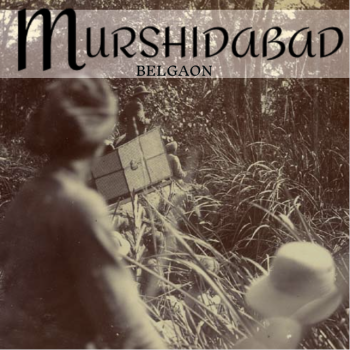 There are two kinds of thirty-something North American Mormons: those who can complete the phrase, "And if you want to study a Mormon, I'm a _______"—and those who can't. If you can, chances are you were a middling-sized kid in the late seventies someplace along the Mormon corridor. During your early childhood, your parents acquired a cassette tape from Brite Music, a multi-level-marketed music production company. And at that moment, most of the neural networks in your hippocampus—neurons you might later vainly wish to devote to Bayes' theorem, or the Krebs cycle, or the location of your car keys—were forever captured by the lyrics and melodies of Janeen Jacobs Brady.
There are two kinds of thirty-something North American Mormons: those who can complete the phrase, "And if you want to study a Mormon, I'm a _______"—and those who can't. If you can, chances are you were a middling-sized kid in the late seventies someplace along the Mormon corridor. During your early childhood, your parents acquired a cassette tape from Brite Music, a multi-level-marketed music production company. And at that moment, most of the neural networks in your hippocampus—neurons you might later vainly wish to devote to Bayes' theorem, or the Krebs cycle, or the location of your car keys—were forever captured by the lyrics and melodies of Janeen Jacobs Brady.
(It's "living specimen," by the way.)
I'm a Mormon, yes I am!
And if you want to study a Mormon I'm a living specimen.
Maybe you think I'm just like anybody else you see,
But trust in my word,
You'll quickly observe,
I'm different as can be!
Janeen Brady, a Utah-based LDS mother of nine, composed prolifically during the 1970s and 1980s. She almost always wrote for children, and the breadth of her oeuvre was impressive: in addition to her Mormon-themed songs, Brady's music covered safety guidelines, American patriotism, reading and writing, and even the multiplication table. She received some national recognition for her Safety Kids series in the 1980s, but as the stream of new products from Brite Music slowed after that, she faded from cultural consciousness. These days, most young Mormon children know her single contribution to the official Children's Songbook, "I Lived in Heaven."
For those of us who imbibed Brady's work during childhood, a scrap of melody or phrase ferries us across the decades with a breath. But even without the transport of nostalgia, to listen to the Brady album "Songs for a Mormon Child" is to pass an hour in the 1970s, so steeped is her songwriting in the flavors and fixations of that decade. The album favors bustling orchestrations of energetic marches, like the iconic "I'm a Mormon," and disco-influenced bass lines, as in "My Big Brother's Going on a Mission." The songs are full of playful winks like the klezmer references in "I Know the Prophets," and the clever trick rhymes in "Got a Dime in my Pocket:" "Got a dime in my pocket / I can feel when I walk, it / Kinda rolls and bounces around."
The lyrics, too, declare their vintage at every turn. The songs focus on temple building and on missionary work, and in particular on senior missionary service, which began to grow in popularity in the 1970s. They provide a melody for the church public relations strategy of that decade, reclaiming the label "Mormon" and creating a recognizable public image. And of course they set to 4/4 time the vigorous pro-natal stance of the 1970s church, glimpsing occasionally the incipient culture war surrounding feminism and the ERA.
Chronology would thus set Brady alongside Mormon songwriters Carol Lynn Pearson and Lex de Azevedo, and indeed her music bears comparison with My Turn on Earth and Saturday's Warrior as instances of musical pop-theology. But where Pearson's didacticism is leavened by metaphor, and de Azevedo's is driven by dramatic narrative, Brady's lyrics are virtually free of both. A question suggests itself, then: while Carol Lynn Pearson's verse plainly exceeds mere ideology and asserts itself as poetry, can one make a similar case for the artistic merit of Brady's work? Is there any poetry to be found in the Janeen Jacobs Brady songbook?
By any account, the most prominent feature of Brady's songwriting is its didacticism. But if she hearkened to a school-teacherly muse, her music was never school-marmish; her work is overtly didactic, but it is rarely dreary. And while the songs deliver a straightforward message, they also draw attention to the messenger: there is often a trusted adult implied in the world of the song, a second person who conveys the message to the child narrator—a mother, a father, a teacher. "My Teacher Told Me I Should Never Tell a Lie" is a good example of this:
My teacher told me I should never tell a lie,
For a lie will bring you trouble sure as pie;
It's an awful thing to do,
And it's true as true as true,
You'll get caught, and then you'll start to cry.
The song is about honesty, yes, but it's also about a child's relationship with her teacher—that is, about an exchange with authority. For a child, authority is first embodied in a living person, and authoritative discourse is first spoken by the same mouth that moments ago kissed, clucked or crooned to the child. This insight—that gospel truths are always already socially contextualized for children—is one that is largely absent from the Children's Songbook, and it is the poorer for it.





